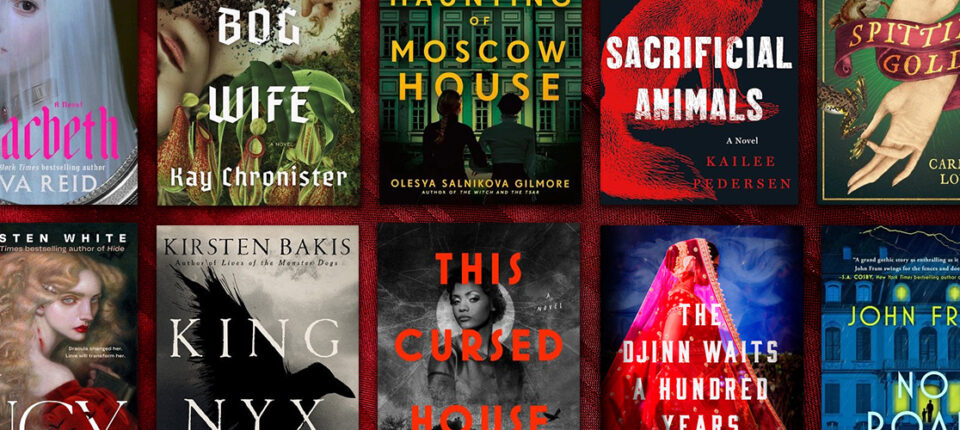We are living in dire times and decaying homes, diseased bodies and disastrous policies, dark visions and disturbed mentalities. Perhaps that why the gothic revival continues apace, with 2024 as the best year yet to immerse oneself in the genre. The following titles are not only great books, but exemplary gothics, both honoring the roots of the genre and pushing it into new territories with increasingly explicit connections between haunted vibes and real-world issues.
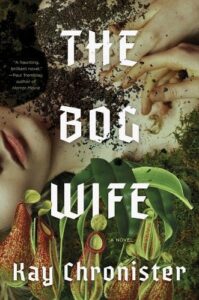
Kay Chronister, The Bog Wife
(Counterpoint)
This book will leave you thinking, wtf did I just read?!? As Brat Summer ends and we head into to #bogcore fall, you can pick up the latest from Kay Chronister and slowly sink into the peaty depths of a dense and inflammatory gothic (sorry guys, I’m just really trying to make some bog puns here)…Anyway, The Bog Wife is, basically, indescribable, but the general gist goes thusly: a family must be reunited to bury their dying patriarch in the family’s ancestral cranberry bog, hoping to welcome the next generation’s “bog wife” from the peat in exchange for the patriarch’s soul—a woman made of mud and moss, who will bear the next patriarch’s children. When no such creature materializes, the assembled siblings must battle climate change, pollution, and other threats to the swamp to ensure their future and that of the earth itself.

Olesya Salnikova Gilmore, The Haunting of Moscow House
(Berkley)
In the immediate aftermath of the Russian Civil War, two newly impoverished sisters from an old aristocratic family are struggling to survive. Starving, lost, and haunted in their ancestral home by the ghosts of their family’s past, the sisters must find new meaning in their changed world, and protect themselves from both Soviet authorities and family secrets. There’s something particularly astute about taking the gothic manor into the revolutionary world, where the rot and corruption of aristocracy meets the destruction of war, and the sins of the past come up against the hardships of the present. I eagerly anticipate more thoughtfully devastating prose from Olesya Salnikova Gilmore.
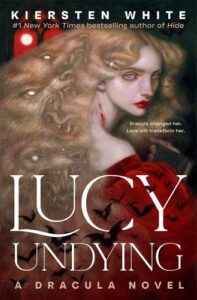
Kiersten White, Lucy Undying
(Del Rey)
Justice for Lucy Westenrea! Kiersten White finally gives us a version of the Bram Stoker character we can respect and love, in just one of the many excellent lesbian vampire novels coming out this year (is it hot lesbian vampire summer? Or perhaps, undead lesbian fall?). I loved Mister Magic, White’s strange and beautiful horror novel about childhood trauma and children’s television shows, and Lucy Undying is just as good—although waaay more gory.
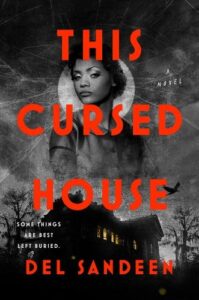
Del Sandeen, This Cursed House
(Berkley)
Jemma Barker is broke and newly single when a strange offer comes in: a lucrative position has opened up with a wealthy family on their Louisiana plantation, and Jemma needs to get out of Chicago, fast. It’s 1962 and the world is changing, but for the family on the plantation, things appear to be frozen in time, as the family is still stuck in the colorism that allows them to feel superior to the darker-skinned Jemma. Sandeen’s heroine soon learns that the family has summoned her for a very particular purpose: they are cursed, and they believe her to be the only one who can save them from future calamity.
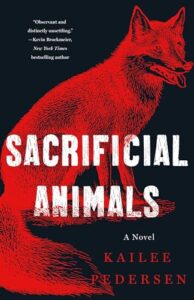
Kailee Pederson, Sacrificial Animals
(St. Martin’s)
In this folklore-tinged tale of Nebraskan horror, toxic family dynamics and even more toxic mid-century masculinity and racism are on full display when a patriarch’s pending death brings his estranged sons back home to the farm. In between flashbacks to a horrible childhood and a slow reveal of an original sin, the two sons escalate their fight over matters of love and inheritance. Meanwhile, the woman at the heart of the family’s destruction has her own secrets to slowly tease out. As harshly beautiful as the midwestern setting (but thankfully not as taciturn).
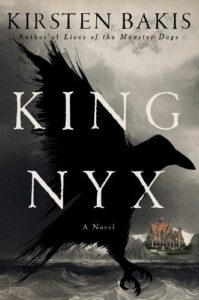
Kirsten Bakis, King Nyx
(Liveright)
The first novel from Kirsten Bakis in 25 years! In King Nyx, set during the height of the Spanish Influenza, a sensible woman of a certain age and her flighty yet devoted husband head to a remote island. They’re looking forward to a stay at the manse of an eccentric robber baron; her husband is hoping to finish his magnum opus on meteorological anomalies (rains of fish, frogs, blood, etc), and Bakis’ narrator simply wishes to get some rest. Upon arrival, however, they find out that multiple girls have gone missing from the rehabilitation home/workhouse also located on the island, and they must isolate in quarantine for at least two weeks before they even meet with their mysterious benefactor. There are neighbors in quarantine as well, also on the island for an intellectual retreat, and Bakis’ narrator soon teams up with the kindred spirit next door to understand what’s going on. Bakis’ symbolism is particularly on point, with a creepy garden, a beautiful set of parakeets, and automata aplenty. Future students will highlight the crap out of this book.

Shubnum Khan, The Djinn Waits 100 Years
(Viking)
Shubnum Khan has written a lush, romantic gothic novel set in a crumbling seaside estate in South Africa. A century before, the house bloomed with an doomed romance; now, a young girl wanders its halls, finding ways to bring new joy to the strange residents, and getting closer to discovering the secrets that first shattered the home’s happiness and led to its present day haunting by a mournful djinn.
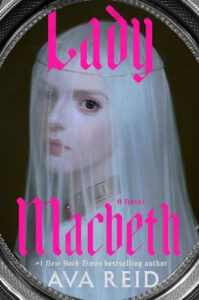
Ava Reid, Lady MacBeth
(Del Rey)
Ava Reid’s epic, furious take on the Lady MacBeth turns her subject into a gothic heroine trapped by her brutish husband in a cold Scottish castle, devoid of both other women and any sort of affection. Reid’s Lady must use all her cunning to stay alive in the cutthroat world of her husband’s court against a backdrop of a semi-fantastical depiction of 11th century Scotland that feels right out of Beowulf. She soon proves herself tougher than the mutton at the royal table, and ready to spill more guts than a chef preparing haggis…But beyond the food puns, this is an essential reworking of a much-maligned character that also feels right at home in our current climate of rising misogyny.
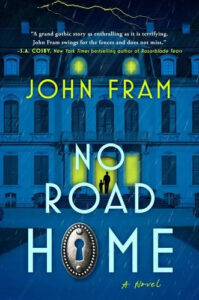
John Fram, No Road Home
(Atria)
A wealthy preacher’s compound is the setting for this gothic parable from the author of The Bright Lands. The narrator of No Road Home, newly wedded to the beautiful scion of a megachurch pastor, is visiting his wife’s family for the first time when a storm closes them off from the rest of the world just as their patriarch is found dead. Even before the disturbing demise, Fram’s hero is already having second thoughts about the marriage: her relatives keep making snide remarks about his gender nonconforming son, it turns out his wife only married him to unlock her own inheritance, every family member appears to be keeping secrets, and someone’s been painting threatening messages warning of vengeance to come. Oh, and there’s also a ghost and some very disturbing paintings…

Carmella Lowkis, Spitting Gold
(Atria)
All is not what it seems in this lush and twist-filled tale. Two spiritualist sisters, famed in their teen years for their convincing seances, must come together for one last con. Spitting Gold is carefully plotted, fully characterized, and incredibly satisfying. Let the ectoplasm flow!

